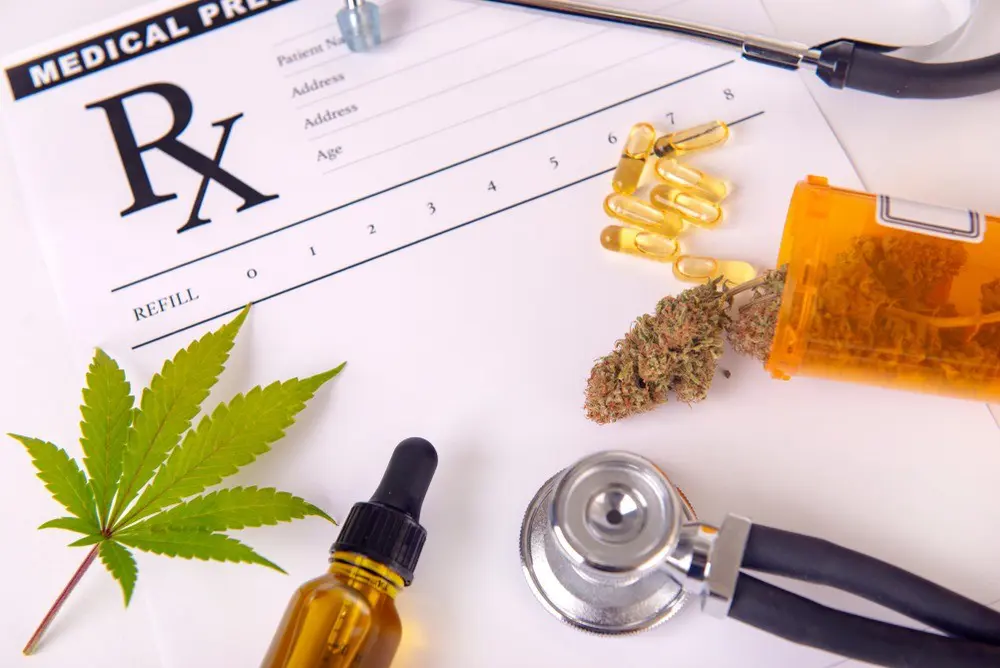Medical Marijuana And Personal Injury Claims
November 27, 2024 by Susan MohrUnderstanding Medical Marijuana: An Overview
Medical marijuana has become a significant focus in discussions surrounding medical treatment and legal considerations. With increasing legalization across various states and countries, understanding its complexities is crucial, especially in the context of personal injury claims. Medical marijuana refers to the use of the cannabis plant, or its components, such as THC and CBD, for therapeutic purposes. It is employed to alleviate symptoms related to a variety of conditions including chronic pain, epilepsy, and anxiety.

Its legality varies widely, impacting how it is perceived and utilized in legal cases. In personal injury claims, medical marijuana may be considered when assessing damages or treatment options, necessitating a nuanced understanding of its medical efficacy and legal standing. It intersects with traditional medication in terms of effectiveness and potential side effects, complicating how claims are evaluated and resolved.
Legal Status Of Medical Marijuana In Personal Injury Cases
The legal status of medical marijuana in personal injury cases is complex and often varies by jurisdiction. As more states have legalized medical marijuana, questions arise about its impact on personal injury claims, particularly concerning individuals who use medical marijuana for pain management after an injury. In states where medical marijuana is legal and prescribed by a healthcare provider, its use is generally recognized as legitimate.
However, challenges may arise when dealing with insurance companies and determining compensation. Some insurers may argue that marijuana use is a mitigating factor or indicative of contributory negligence, potentially reducing the compensation amount. Additionally, conflicting state and federal laws complicate matters, as marijuana remains illegal at the federal level. Courts increasingly need to navigate these contradictions while considering expert testimony concerning marijuana’s effects on impairment and liability in personal injury cases.
The Role Of Medical Marijuana In Pain Management
Medical marijuana has emerged as a significant component in the realm of pain management, offering an alternative to traditional pain relief methods, especially for those suffering from chronic conditions. Its application ranges from alleviating pain associated with arthritis, migraines, and fibromyalgia to addressing severe discomfort resulting from cancer treatments. The cannabinoids present in marijuana, such as THC and CBD, interact with the body’s endocannabinoid system, which plays a role in regulating pain and inflammation.
Patients often prefer medical marijuana due to its natural origins and relatively favorable side-effect profile compared to opioids. This shift is especially pertinent in the context of the ongoing opioid crisis, which has highlighted the need for less addictive pain management options. Nevertheless, its use is not without controversy, necessitating ongoing research and careful consideration of legal and ethical implications in personal injury claims.
Challenges In Proving Medical Marijuana Use In Court
Proving medical marijuana use in court within personal injury claims can present several challenges. One significant issue is the variability in state laws regarding the legalization and use of medical marijuana, which can affect how evidence is presented and interpreted. Many jurisdictions still perceive marijuana with stigma, potentially influencing judges’ and jurors’ perspectives. Additionally, demonstrating a clear causal link between marijuana use and the injury in question can be complex, particularly due to variations in individual reactions and the presence of other factors that might have contributed to the incident.
Documentation such as prescriptions and medical records must be thorough and precise, yet inconsistencies in healthcare providers’ recommendations can complicate the claim. Furthermore, opposing parties may argue that marijuana use constitutes contributory negligence, complicating efforts to establish liability and secure compensation.
Compensation Considerations For Medical Marijuana Users
Compensation considerations for medical marijuana users in personal injury claims can be complex and multifaceted. The use of medical marijuana is a legally recognized treatment in many states, but it can still present challenges when determining compensation. One key consideration is the legality of marijuana use in the state where the injury occurred, as this can significantly impact the outcome of a claim.
Additionally, insurance companies and courts may scrutinize the role of marijuana in the individual’s medical treatment and its potential effect on the injury or recovery process. It is important to demonstrate that the use of medical marijuana was lawful, medically necessary, and did not contribute to the accident. Users may also face challenges in proving that their marijuana use did not impair their ability to work or function, which could affect the calculation of lost wages or future earning capacity.
Future Trends: Medical Marijuana And Personal Injury Law
As the legal landscape surrounding medical marijuana continues to evolve, future trends in personal injury law are likely to be significantly influenced by its increasing acceptance and use. One anticipated trend is the expansion of case law addressing the role of medical marijuana in compensation claims, particularly regarding its efficacy as a prescribed treatment and its impact on quality of life.
Courts might begin to see more arguments about the necessity of coverage for medical marijuana costs in settlements or judgments. Additionally, the interplay between state and federal laws will continue to play a pivotal role, particularly in states where marijuana remains illegal federally. As scientific research advances, providing more definitive evidence of medical marijuana’s benefits and risks, personal injury cases could see new types of claims or defenses emerge, potentially leading to more nuanced legal standards and precedents.
Susan Mohr
Mohr Marketing, LLC
CEO and Founder


Recent Posts
- J&J Talc Spinoff’s Ch. 11 Case Gets Tossed, Erasing $9B Deal
- Understanding The Importance Of Lead Generation For Chiropractors
- Why Family Law Firms Need To Buy Leads
Categories
- Business Financing
- Call Verified MVA Leads
- Compliance Program
- Lead Generation For Chiropractors
- Lead Generation For Criminal Attorneys
- Lead Generation For D&A Treatment Centers
- Lead Generation For Eye Doctors
- Lead Generation For Family Law Practices
- Lead Generation For PI Law Firms
- Lead Generation For Plastic Surgeons
- Leads For Healthcare Professionals
- Leads For Insurance Industry
- Legal Leads
- Legal Updates
- Mass Tort Leads
- Medicare and Medicaid Leads
- Merchant Funding Leads
- Online Marketing Strategies
- Pre-Settlement Funding
- Signed MVA Cases
- Tort Updates
Archives
Copyright © 2024 Mohr Marketing, LLC. All Rights Reserved.


